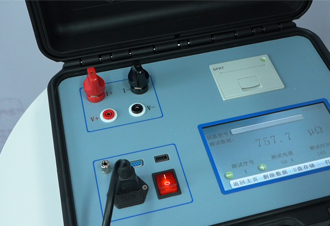 English
English


Cost Estimates for Gas Chromatograph Mass Spectrometer Equipment and Tools
Understanding the Price Dynamics of Gas Chromatograph Mass Spectrometers
Gas Chromatograph Mass Spectrometers (GC-MS) are indispensable tools in analytical chemistry, used extensively in fields such as environmental monitoring, food safety, pharmaceuticals, and forensic science. The combination of gas chromatography and mass spectrometry offers a powerful method for separating, identifying, and quantifying compounds within a sample. However, acquiring a GC-MS system represents a significant financial investment, so understanding the factors influencing its price is crucial for potential buyers.
Key Components Influencing Price
1. Instrument Type There are various types of GC-MS systems available in the market, ranging from benchtop models designed for routine analysis to high-resolution systems capable of detecting ultratrace levels of components in complex mixtures. The complexity and sensitivity of the instrument significantly affect its price. High-end systems equipped with advanced features and enhanced sensitivity can cost upwards of $100,000, while basic models may start around $30,000.
2. Manufacturer and Brand The brand reputation and the manufacturer's innovation also play a crucial role in pricing. Established companies like Agilent, Thermo Fisher, and LECO offer reliable and advanced systems, but their products tend to be on the higher end of the price spectrum. Newer companies or those offering refurbished instruments might provide more budget-friendly options, although quality and customer support may vary.
3. Additional Features and Accessories GC-MS instruments come with a range of features that can influence the overall cost. Options such as automated samplers, advanced software for data analysis, and high-end detectors can increase the price. Furthermore, additional accessories, such as specialized columns, maintenance kits, and training programs for operators, should also be factored into the total cost of ownership.
4. Service and Support Ongoing maintenance and technical support are essential for the proper functioning of GC-MS systems. Some manufacturers offer service contracts that ensure regular maintenance and rapid repair services, which can add to the initial purchase cost but provide peace of mind in terms of instrument reliability and longevity.
gas chromatograph mass spectrometer price

5. Market Demand and Location Economic factors also influence the pricing of GC-MS systems. For instance, a higher demand in a particular region or a scarcity of specific models can lead to increased prices. Additionally, international shipping and import taxes can significantly affect costs for buyers outside the country of manufacture.
Long-term Investment Considerations
When evaluating the price of a GC-MS system, potential buyers must consider not only the initial purchase price but also the total cost of ownership, including operating expenses such as consumables (like gases and columns), maintenance, and labor costs. Investing in training for operators can also enhance the system's functionality and yield better analytical results, justifying the higher initial costs.
Exploring Budget Options
For labs with limited budgets, several strategies can help manage expenses. Purchasing refurbished or used instruments from reputable sources can provide substantial savings without compromising quality. Leasing options are also available for those who may not have the upfront capital to invest in a brand-new system. These alternatives can allow laboratories to conduct essential analyses while conserving financial resources for other investments.
Conclusion
In conclusion, the price of a Gas Chromatograph Mass Spectrometer is influenced by numerous factors, including the type of instrument, brand reputation, additional features, service agreements, and market dynamics. Understanding these factors can aid laboratories in making informed purchasing decisions that align with their analytical needs and budgets. Ultimately, a GC-MS system is a long-term investment that, with careful consideration and management, can yield significant returns in terms of analytical capability and data quality. As technology continues to advance, future iterations of GC-MS may introduce even more capabilities, potentially altering the landscape of pricing and accessibility in this critical analytical field.
-
Differences between open cup flash point tester and closed cup flash point testerNewsOct.31,2024
-
The Reliable Load Tap ChangerNewsOct.23,2024
-
The Essential Guide to Hipot TestersNewsOct.23,2024
-
The Digital Insulation TesterNewsOct.23,2024
-
The Best Earth Loop Impedance Tester for SaleNewsOct.23,2024
-
Tan Delta Tester--The Essential Tool for Electrical Insulation TestingNewsOct.23,2024





